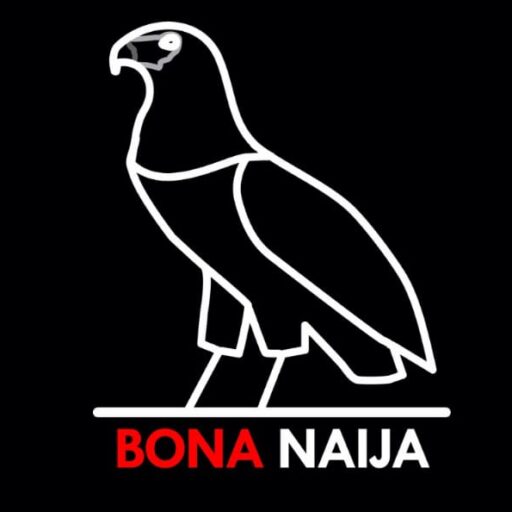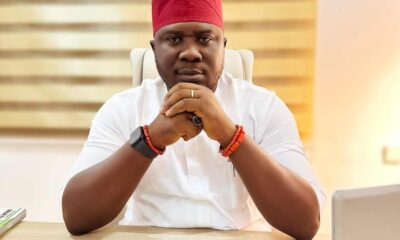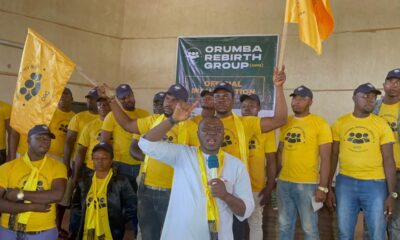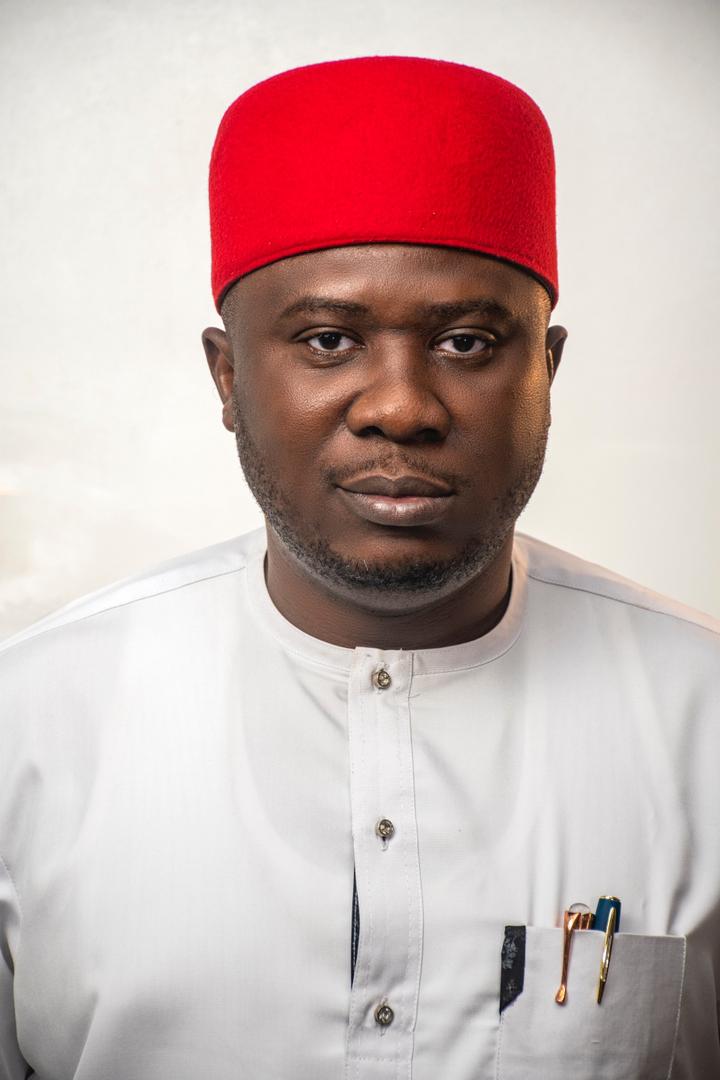
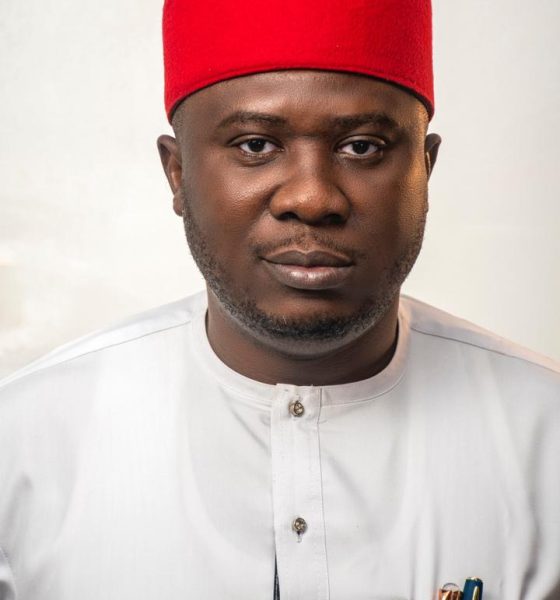
News
International Youth Day: Nigerian Youths must Speak up – Chibuike Echem
In 1965, the United Nations General Assembly began making a concerted effort to impact the youth. They endorsed the Declaration on the Promotion among Youth of the Ideals of Peace, Mutual Respect and Understanding between Peoples. They began devoting time and resources to empowering the youth by recognizing emerging leaders and providing them with resources to meet the world’s needs.
August 12, is a very important date in the global calendar. It is a day that the global community sets aside to celebrate the International Youth Day. The important purpose of this annual celebration going by information from the United Nation is to, among other things, raise voices against any injustice or discrimination happening in the world with the youth. Again, going by available records, International Youth Day was recognised by the UN when they passed a resolution towards creating it in 1999 at the UN General Assembly.
Essentially, there was a need for this day because a very large amount of youth in the world are struggling with issues related to physical or mental health, education and employment and these issues need to be addressed. When the government or society does not focus on the proper development of the youth, they tend to become rebellious and opt for choices which are neither good for their development nor for their country.
As the global community uses workshops, concerts, conferences, cultural events, seminars and meetings involving national and local government officials and youth organisations to celebrate the day, while recognising the contributions of young people and volunteers who are working towards the betterment of society and are raising important issues that need more attention of the society, there are painful signs that the situation in Nigeria shows that instead of celebrating, the average Nigerian youth is currently in a state of frustration.
In Nigeria the frustration of these young victims was not only fuelled by the gap between the promises made in the past by the government without fulfilment but predicated on the ills that flow from bad leadership, which daily manifests in the ‘tradition’ of leading without recourse to transparency and accountability. And as a consequence, ‘stifles development, siphons all scarce resources that could improve infrastructure, bolster education systems and strengthen public health and stack the deck against the masses.
Youth unemployment is potentially dangerous as it sends a signal to all segments of Nigerian society. Here in Nigeria, the rate of youth unemployment is high, even during the period of economic normalcy and this remains the real cause of insecurity in Nigeria.
From the above, it is obvious that ‘we are in a dire state of strait because unemployment has diverse implications. Security-wise, the large unemployed youth population is a threat to the security of the few that are employed. Any transformation agenda that does not have job creation at the centre of its programme will take us nowhere.
From unemployment challenges to the poor education sector, it is accurately documented that many Nigerian children are out of school not because they are not willing to be educated but because the cost of education is beyond the reach of their parents. The public schools are short of teachers with dilapidated buildings. Private schools on the other hand where the environment is conducive to learning is cost-intensive and out of reach of so many students and their parents.
In like manner, the Academic Staff Union Of Universities has been on strike since February 14, 2022. The group embarked on such industrial action to protest the government’s inability to implement their demands on salaries and allowances of lecturers, and improved funding for universities. The implication is that for the past six months and counting, these youths have been idling away at home and the Federal Government has not considered the damage such failures impose on this future strength of the nation that their generation will provide the next leaders.
looking at the above painful situations, and considering the fact that Nigeria races to the 2023 general election, the question(s) may be asked: How far can the youth go in a nation where tribal loyalty is stronger than our common sense of nationhood? Can the youth effectively guard their courage? How far can the youths go as change agents in a country, where excruciating poverty and starvation continue to drive more people into the ranks of beggars, whose desperate struggle for bread renders them insensible to all feelings of decency and self-respect?
While the answer(s) to these questions is being awaited, the truth must be told to the effect that to make this year’s world youth day rewarding as well as change this trend, and achieve the objective of engaging youth in formal political mechanisms, increase the fairness of political processes by reducing democratic deficits, contributes to better and more sustainable policies, which have symbolic importance that can further contribute to restoring trust in public institutions, especially among youth, there are inescapable actions that the youths must take, there are steps/action plans that Nigerian youths must execute.
Separate from constructively and sustainably engaging the Federal Government, It will not in any way be described as out of place if the youths harness their population advantage and their demographic dividends to form a formidable opposition that holds the government accountable or better still seek political offices come 2023 general election.
It is important that Nigerian youths continue to speak up against violations of human rights, suppression of free speech and freedom of the press. Youths must not initiate, encourage or spread false, mischievous or divisive information capable, or with outright intent, of misleading the populace and disrupting societal harmony and peace. Within the ambience of the law, they must speak up with facts against any wrongdoing or oppression by the government or fellow citizens capable of endangering sustainable democracy and the effective delivery of good governance.
On December 17, 1999, the UN General Assembly endorsed the recommendation made by the World Conference of Ministers Responsible for Youth, and International Youth Day was born. It was first celebrated on August 12, 2000, and ever since the day has been used to educate society. Mobilize the youth in politics and manage resources to address global problems.
This year’s celebration is centered on the theme “Intergenerational Solidarity: Creating a World for All Ages.”
In line with the annual celebration of International Youth Day, I wish to celebrates with Nigerian youths inspiring Students expresses our heartfelt greetings.
News
Nnamdi Kanu moved to Sokoto prison, says lawyer
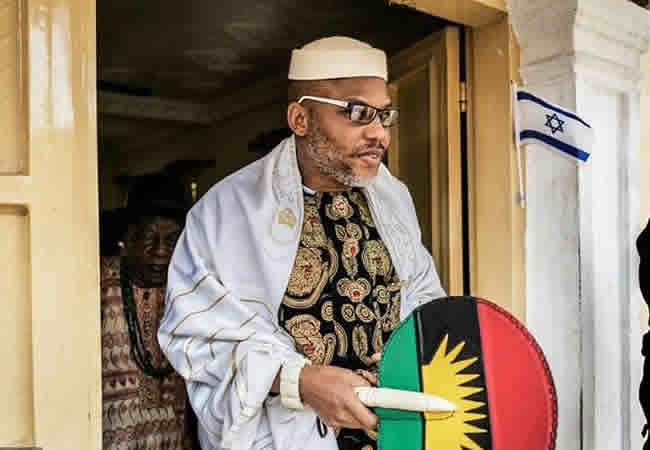
Nnamdi Kanu, the leader of the Indigenous People of Biafra (IPOB), has been transferred to a correctional facility in Sokoto, Nigeria, following his life sentence for terrorism charges.
His lawyer, Aloy Ejimakor, announced the move on social media, expressing concern about Kanu’s distance from his family and legal team.
Kanu was sentenced to life imprisonment on Thursday by Judge James Omotosho of the Federal High Court in Abuja for counts one, four, five, and six of the seven-count charge. He also received additional prison terms for other charges.
The judge cited Kanu’s violent tendencies and deemed him unsuitable for Kuje prison, ordering that he be placed in protective custody.
The items retrieved from Kanu, including a smuggled transmitter, will be forfeited to the federal government.
Follow BONA NAIJA for more
News
Police, School Owner Dismiss Viral Kidnap Claims in Nasarawa
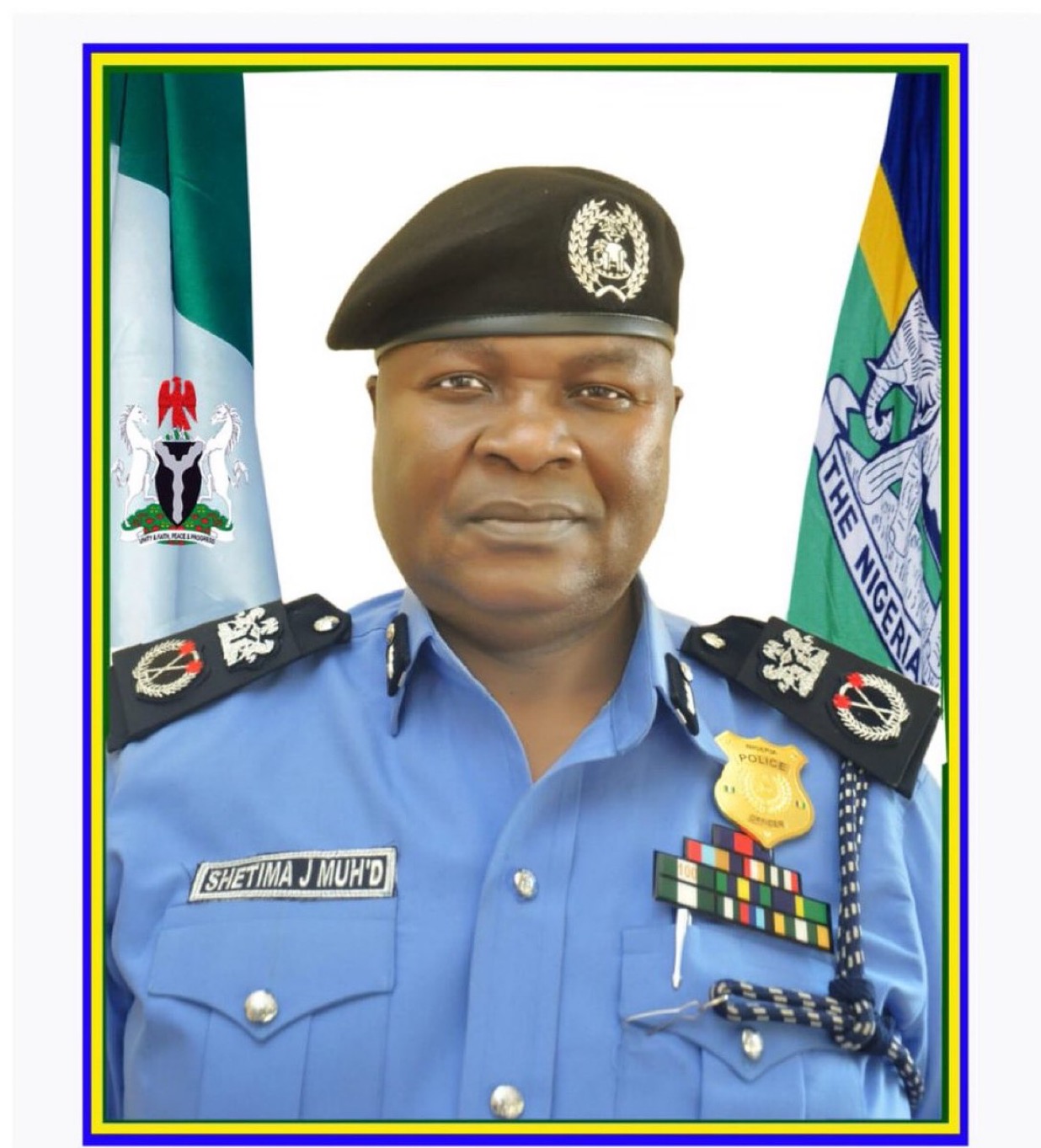
The Nasarawa State Police Command and the management of St. Peters’ Foundation Secondary School have debunked reports alleging that students were kidnapped from the school premises on Friday.
The false claims, which spread rapidly across social media, suggested that suspected kidnappers invaded the school located in the state.
However, during a voice call facilitated by the Police Public Relations Officer, Ramhel Nansel, and shared with TVC News Digital, the school proprietor, Peters Ezegwoya, dismissed the reports as baseless.
Ezegwoya clarified that the alarm was triggered when students heading to the school field for their Physical and Health Education (PHE) practicals sighted armed local hunters. Their presence led to panic, prompting teachers to escort the students back to their classrooms.
He explained:
“This is a rumor. The students were on the school field for their Physical and Health Education practical when one student raised a false alarm. After teachers sent the students back to their classrooms, they continued spreading the unfounded rumor about a kidnapping on school grounds. It is entirely false.”
The Police Command has urged the public to disregard the misinformation and avoid sharing unverified reports capable of causing unnecessary panic.
Follow BONA NAIJA for more
News
Niger Confirms Fresh School Attack, Blames Management for Ignoring Security Warning
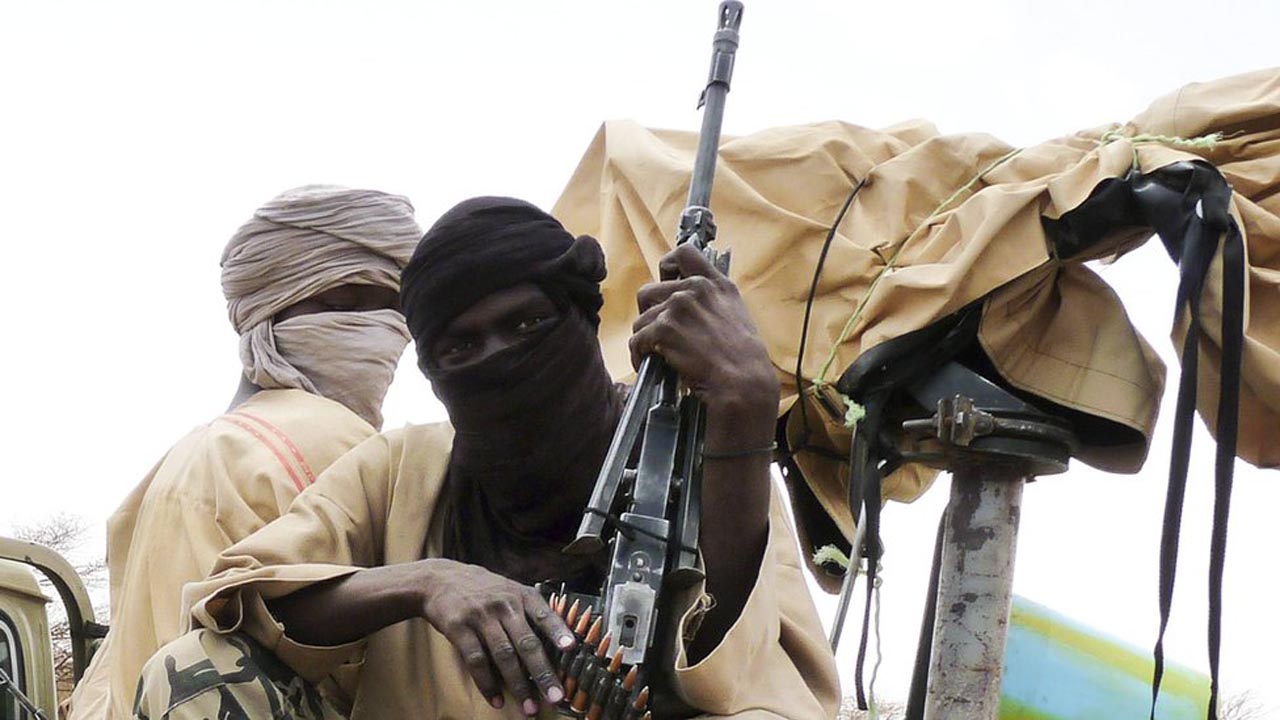
The Niger State Government has confirmed the abduction of students and staff of Saint Mary’s Catholic School in Papiri, Agwara Local Government Area, following a bandit invasion on Friday.
Bandits were reported to have stormed the school between 2am and 3am, whisking away an unverified number of pupils and staff. Earlier, the Head of Department, Disaster and Relief in Agwara LGA, Ahmed Abdullahi Rofia, confirmed the incident by phone but withheld details.
In an official statement, Secretary to the State Government (SSG), Abubakar Usman, said intelligence received earlier had prompted the state to order the closure of all boarding schools in the threatened areas. He noted that the affected Catholic school defied this directive and reopened without notifying the government.
Usman said:
“The Niger State Government has received with deep sadness the disturbing news of the kidnapping of pupils from St. Mary’s School in Agwara Local Government Area. The exact number of abducted pupils is yet to be confirmed as security agencies continue to assess the situation.”
According to him, the government had issued a security advisory after credible intelligence indicated heightened threats across parts of the northern senatorial district.
“In response to these credible security alerts, the State Government had earlier issued a clear directive suspending all construction activities and ordering the temporary closure of all boarding schools within the affected zone as a precautionary measure.
“St. Mary’s School, however, proceeded to reopen and resume academic activities without notifying or seeking clearance from the state.”
He added that security agencies have launched a full-scale investigation and search-and-rescue operation to ensure the safe return of the abducted victims.
“The Niger State Government is in close communication with all relevant security formations and will provide continuous updates as more information becomes available.”
The government urged school proprietors, community leaders, and stakeholders to strictly adhere to security advisories to avoid preventable tragedies, stressing that safeguarding the lives of children remains a top priority.
The latest attack comes as insecurity resurges across some northern states. Recently, the Kwara State Government shut down over 50 schools due to similar security concerns.
Follow BONA NAIJA for more
News
BREAKING: Court Sentences Nnamdi Kanu to Life Imprisonment
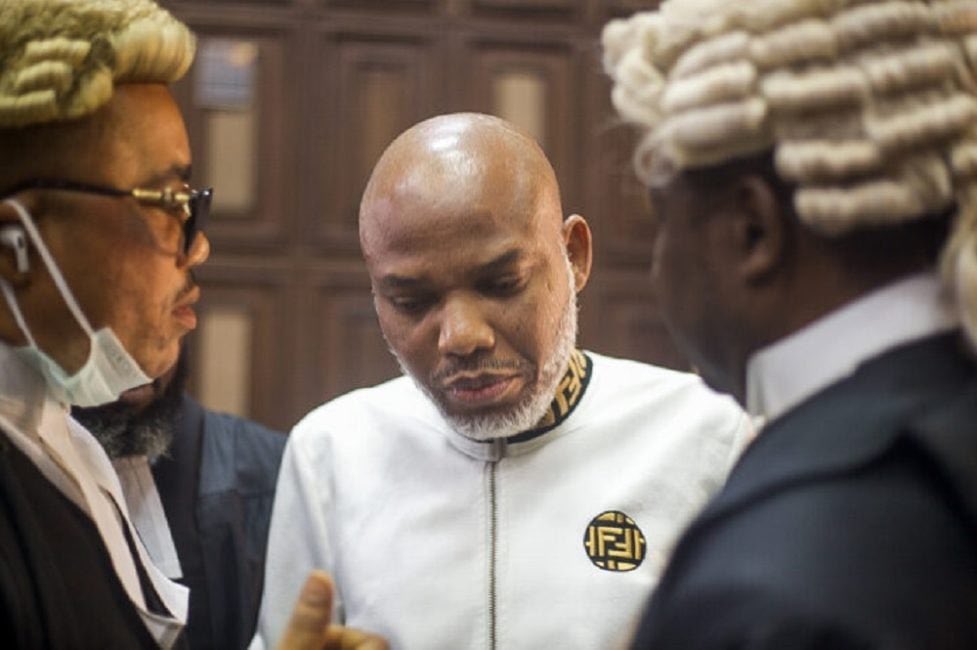
Justice James Omotosho of the Federal High Court in Abuja has sentenced Nnamdi Kanu, leader of the proscribed Indigenous People of Biafra (IPOB), to life imprisonment, marking a major climax to a decade-long trial.
The judgment, delivered on Thursday, comes four years after Kanu was arrested in Kenya under controversial circumstances and returned to Nigeria to face terrorism charges.
Kanu was convicted on all seven counts bordering on terrorism, despite pleading not guilty throughout the trial.
The judgment was delivered in his absence after he insisted that the court would not deliver judgment in the case. His refusal to participate prompted Justice Omotosho to order security operatives to remove him from the courtroom over what the judge described as “unruly behaviour.”
In his ruling, Justice Omotosho held that several of Kanu’s broadcasts on Radio Biafra amounted to acts of terrorism, noting that his rhetoric was intentionally violent and targeted at destabilizing the country.
He added that Kanu’s sit-at-home directives in the South-East constituted terrorism, describing the order as a violation of citizens’ constitutional right to freedom of movement.
The court further stated that evidence before it showed Kanu had carried out “preparatory acts of terrorism” through broadcasts in which he allegedly ordered attacks on police and military personnel.
Justice Omotosho concluded that Kanu committed acts of terrorism against the Federal Republic of Nigeria, warranting the sentence imposed.
News
FG Seeks Death Penalty for Nnamdi Kanu After Terrorism Conviction
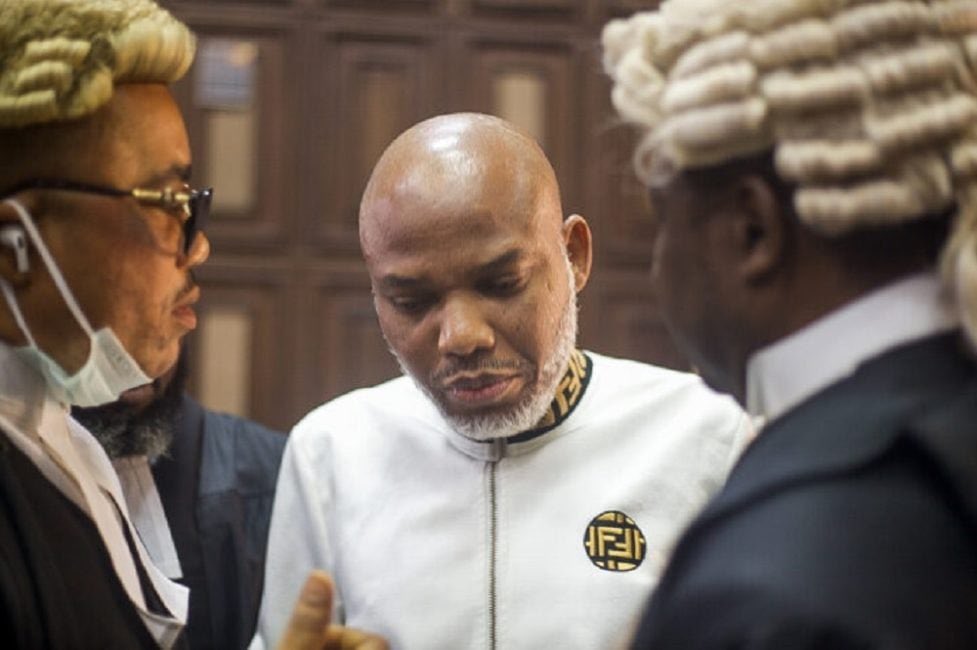
The Federal Government has urged the Federal High Court in Abuja to impose the death penalty on Nnamdi Kanu, leader of the proscribed Indigenous People of Biafra (IPOB), following his conviction on seven counts of terrorism on Thursday.
Justice James Omotosho delivered the judgment after ruling that the prosecution had proved its case beyond reasonable doubt, finding Kanu guilty on all seven charges.
Moments after the conviction, the Federal Government’s lead counsel, Adegboyega Awomolo, SAN, asked the court to apply the maximum punishment prescribed under the Terrorism Prevention (Amendment) Act, 2013.
Awomolo told the court that several of the offences for which Kanu was found guilty carry a mandatory death sentence.
“My Lord, consequent upon the conviction, nothing further remains but the lawful imposition of sentence. The punishment prescribed for the offences in Counts One, Two, Four, Five and Six, pursuant to Section 12H of the Terrorism Prevention Amendment Act 2013, is death,” Awomolo said.
“With all sense of humility, I say as a prosecutor that this court has no discretion in that regard. The only sentence Your Lordship can impose for Counts One, Two, Four, Five and Six is death, because the law empowers you to do so, and we expect that you will.”
Sentencing is expected to follow after the court considers all submissions from both sides.
WATCH THE PROSECUTOR SPEAK
-

 World News2 weeks ago
World News2 weeks agoUS Military Submits Contingency Plan for Action in Nigeria
-
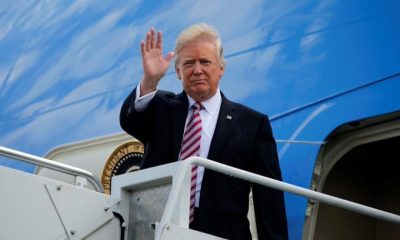
 World News3 weeks ago
World News3 weeks agoTrump asks Pentagon to immediately start testing U.S. nuclear weapons
-

 Music3 weeks ago
Music3 weeks agoMusic: Badshah and Davido Launch Cross-Cultural Hit “Wallah Wallah”
-

 Entertainment3 weeks ago
Entertainment3 weeks agoBurna Boy Makes Twitch Debut with PlaqueBoyMax in Freestyle Session
-

 Music News2 weeks ago
Music News2 weeks agoBurna Boy, Davido, Ayra Starr, Wizkid Lead Nigeria’s Charge in 2026 Grammy Nominations
-

 News3 weeks ago
News3 weeks agoGround Operation, Air Strikes Could Be Part of US Attack in Nigeria – Trump
-
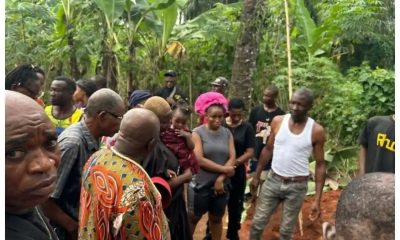
 Imo State3 weeks ago
Imo State3 weeks agoWidow rescued from drinking water used to bathe husband’s corpse in Imo
-

 News3 weeks ago
News3 weeks agoAsari Dokubo Warns Trump: ‘Nigeria Will Be the Graveyard of Any US Invasion’
-

 Entertainment2 weeks ago
Entertainment2 weeks agoDavido Splashes ₦1.08 Billion on 2025 Rolls-Royce Black Badge Cullinan
-

 Africa4 weeks ago
Africa4 weeks ago12 Feared Dead in Kenya Plane Crash En Route to Maasai Mara


